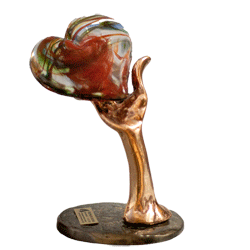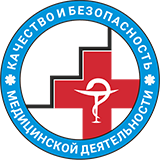Plasmapheresis
The plasmapheresis procedure is used to remove toxic substances from the patient's blood. To describe this process in simple terms, blood is drawn from the patient, then separated into plasma and blood cells, and then passed through a special filter. As a result of filtration, the separated plasma, which remains contaminated, is replaced with saline, donor plasma and other substances that make up the blood.
Get consultationToday, it is one of the easiest, most effective and most accessible treatments with this type of effect. It is widespread in medicine and produces excellent results. The possibilities of plasmapheresis are truly wide-ranging, and we will describe them briefly below.
Indications for plasmapheresis
Plasmapheresis is prescribed:
- in the acute period of inflammation in the chest and abdominal area;
- in infections of various kinds;
- in complex traumas with strong reactions from the body;
- in burns;
- in the case of intoxication.
More specific examples are skin lesions (dermatitis, psoriasis), post-hepatitis C or B conditions, diabetes mellitus, certain diseases of the cardiovascular and genitourinary systems. Plasmapheresis is also indicated for allergies. In the case of intoxication, this includes both alcohol and drug poisoning.
In some cases, cleansing is prescribed to help the body fight the current problem, while in others, the procedure is needed to reduce the severity of the consequences or to prevent recurrent diseases, complications. For example, in the case of diabetes mellitus, the goal is just to prevent secondary complications.
Contraindications
Who is contraindicated for plasmapheresis:
- People with iron deficiency anaemia. If the haemoglobin level is below 90 g/l, the procedure cannot be performed;
- People with some kidney problems that cause poor protein synthesis. Then the test will show that the level of total protein is less than 60 g/l;
- People with tumours. It is important to understand that at different periods there will be different attitudes towards this disease. If the procedure is scheduled before surgery, it is allowed;
- People with severe regular oedema (oedema syndrome);
- People with exacerbation of a number of diseases, such as peptic ulcers;
- If there is an inability to collect blood properly. It occurs, for example, with vascular anomalies;
- People who are undergoing rehabilitation after serious cardiovascular disease (heart attack);
- If the blood does not clot well, there is bleeding.
Plasmapheresis blood purification, if done correctly, brings many benefits and helps solve serious problems.
Benefits of the clinic
We have been performing plasmapheresis for a long time and we know all the nuances of this procedure well. We also thoroughly investigate the patient's condition before the manipulation.
What kind of preparation is required?
There is no specific and complicated preparation before plasmapheresis. It is enough to get a good night's rest and also take care to start eating right some time before this procedure. This is not necessary, but it is advisable to give your body extra support.
In some cases, after gathering the patient's medical history, the doctor will temporarily withdraw medication that the person was taking before the purification sessions. Basically, these are medications that can seriously affect the condition of the blood, its clotting and the body's ability to tolerate various interventions from the outside.
Before the procedure can be carried out, tests must be done to find out whether the patient has any restrictions in order to undergo plasmapheresis. At these points, the preparation for purification ends. And after the procedure itself, you need to take care of the rest period - it is important for the patient to have rest for the rest of the day.
Our clinic
Contact details and address
JSC "Medicine"
Moscow, 2-nd Tverskoy-Yamskoy Lane, 10
Mayakovskaya
Belorusskaya
Novoslobodskaya
Information desk. Open 24 hours a day.
from 8 a.m. to 9 p.m. Mo-Fr
from 9 a.m. to 7 p.m. (Sa) / from 9:00 to 15:00 (Su)







































